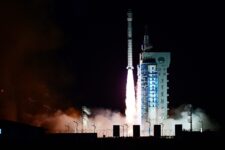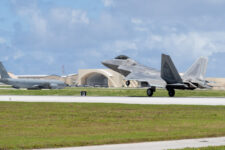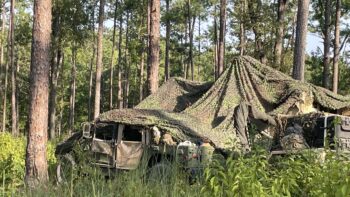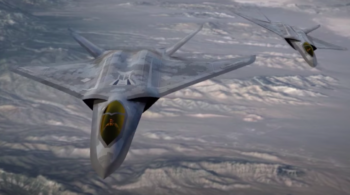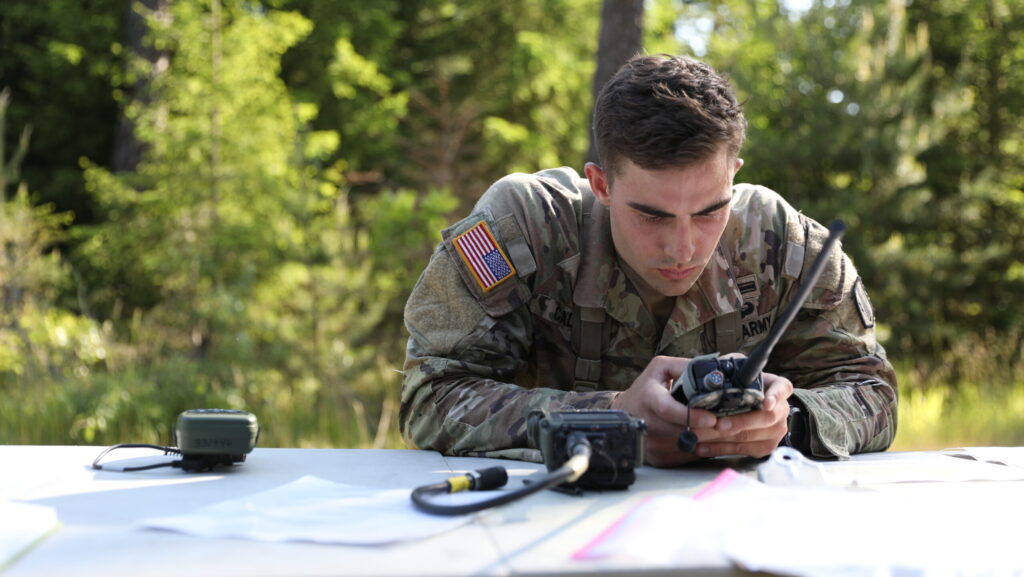
US Army 1st Lt. Edward Calley, assigned to Headquarters and Headquarters Battery, 41st Field Artillery Brigade, completes Defense Advanced GPS Receiver operations during Victory Corps’ Walter D. Ehlers Cup, at Grafenwoehr, Germany, June 4, 2023. (US Army Photo by Sgt. Khalan Moore)
SMD 2024 — As part of its wide-reaching effort to up its game in outer space, the Army Space and Missile Defense Command (SMDC) is eyeing new “offensive space control capabilities” for its embryonic Theater Strike Effects Groups (TSEGs) — the first of which is being piloted at Indo-Pacific Command, according to SMDC head Lt. Gen. Sean Gainey.
While he did not elaborate on precise capabilities under consideration, Gainey explained that the Army is focused only on “non-kinetic” effects — which, for example, could include electromagnetic warfare systems.
The land forces service created the TSEG pilot project to help implement its “Space Vision,” published in January [PDF], which seeks to carve out a service role post the 2019 creation of the Space Force, including a stake in interdicting adversary space threats that could target US forces and satellites.
The INDOPACOM TSEG is not due to reach interim capability in the 2027 timeframe, but other combatant commanders are agitating for their own group, Gainey said. SMDC is working with Army Futures Command on figuring out what the “objective force” for the TSEGs will be as part of a “future warfighting concept” — with Gainey saying he hopes to make an announcement on the result next year.
SMDC has been pushing to make space a formal “military occupation specialty” for enlisted personnel wishing to specialize, and has submitted a proposal to that effort to Army personnel leaders to that effect.
A key goal for SMDC as it reorganizes to implement the new vision document is “getting capability down to our multi-domain task force,” Gainey told the annual Army Space & Missile Defense Symposium in Huntsville, Ala. on Tuesday. The service has established three such task forces already, and is looking to expand in future.
“So you’re going to see space capability proliferating across the battlefield,” he said.
SMDC Command Sgt. Major John Foley told reporters during a roundtable at the symposium that this includes training all soldiers, all the way down to the tactical level, on “simple space capabilities” such as GPS jamming, so they can better react and function in environments where those space capabilities are being “denied” or “degraded” by an enemy.







